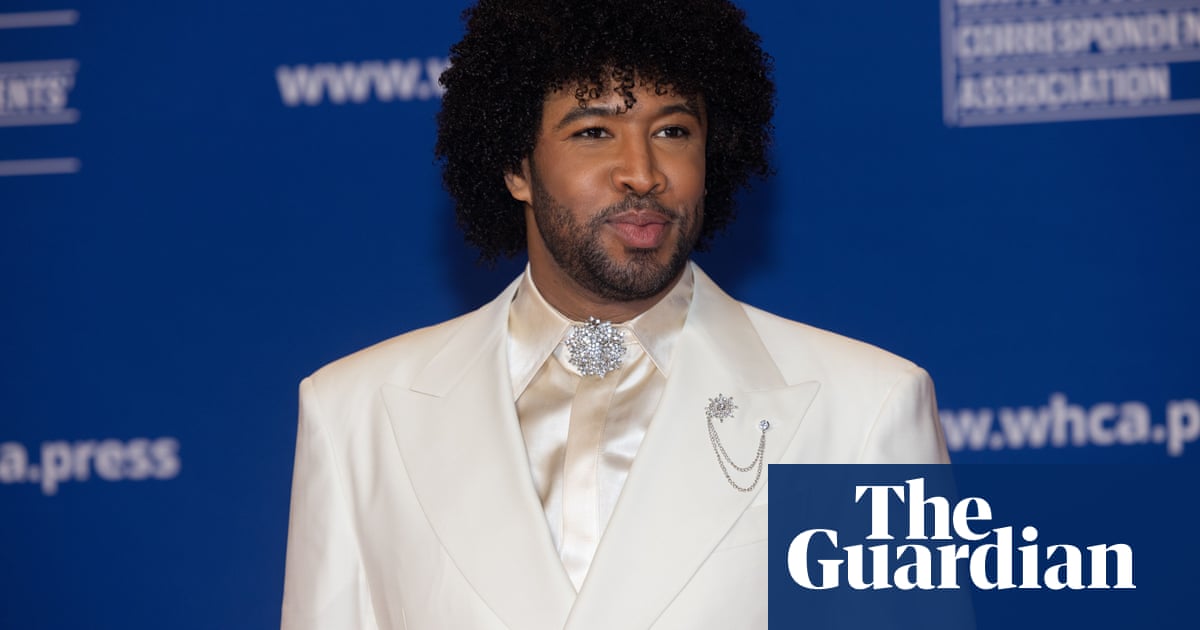Journalists rallied in defence of press freedom on Saturday, insisting they “are not the enemy of the people” ata Washington media galasnubbed by Donald Trump.
The White House Correspondents’ Association (WHCA) dinnerwas a muted affairwith no US president, no comedian and notably fewer politicians or Hollywood stars than in past years.
The event took place under the shadow of a second Trump administration that has launched a wave of fresh attacks on freedom of the press,barring the Associated Pressfrom the presidential pool and moving to shut down the Voice of America broadcaster.
Ina typical yearthe president attends the WHCA dinner to congratulate journalists on their work, give a jokey speech and take it on the chin as a comedian jabs at their expense. But Trump, who has branded the media “the enemy of the people”, gave the dinner a wide berth during his first term and stayed away again this time.
Eugene Daniels, who leads the WHCA, noted that presidents from both sides of the political spectrum are invited every year.“We don’t invite presidents of the United States to this because it’s for them,” he said. “We don’t invite them because we want to cosy up to them or curry favour.
“We don’t only extend invites to the presidents who say they love journalists or who say they’re defenders of the first amendment and a free press. We invite them to remind them that they should be.”
Daniels then showed a video montage of past presidents, from Ronald Reagan to Joe Biden, addressing the dinner with self-deprecating jokes while also expressing their admiration for the press and its central importance in safeguarding democracy. Trump was conspicuous by his absence.
As guests watched,Daniels continued: “We journalists are a lot of things. We are competitive and pushy. We are impatient and sometimes we think we know everything, but we’re also human. We miss our families and significant life moments in service to this job.
“We care deeply about accuracy and take seriously the heavy responsibility of being stewards of the public’s trust. What we are not is the opposition, what we are not is the enemy of the people and what we are not is the enemy of the state.”The giant ballroom erupted in applause.
The Trump administration has had multiple skirmishes with the press in recent months. Federal funding for public broadcasters NPR and PBS is under threat. Trump has also launched legal assaults on private network CBS and the local Des Moines Register newspaper in Iowa, and brought to heel ABC,which paid $15munder threat of a libel lawsuit.
The dinner announced scholarships for aspiring journalists and paid tribute to trailblazing figures in White House press history. It presented awards recognising excellence in reporting, writing and visual journalism. Winners delivered acceptance speeches that were careful not to criticise Trump directly but did unite around the theme of defending the first amendment, which protects freedom of speech.
Alex Thompsonof Axios, who won an award for coverage of Biden, silenced a room that was otherwise buzzing all night when he called out the media for failing to adequately investigate Biden’s mental acuity. The issue blew up when the 81-year-old gave a disastrous debate performance four months before the election.
“President Biden’s decline and its cover up by the people around him is a reminder that every White House, regardless of party, is capable of deception,” Thompson said. “But being truth tellers also means telling the truth about ourselves.
“We, myself included, missed a lot of this story and some people trust us less because of that. We bear some responsibility for faith in the media being at such lows. I say this because acknowledging errors builds trust and being defensive about the further erodes it. We should have done better.”
It was a night of few laughs. The WHCA had invitedthen cancelledcomedian Amber Ruffin after she referred to the Trump administration as “kind of a bunch of murderers” and asserted that “nobody wants” Trump to attend the dinner.
Ruffin was excoriating in her response to being dropped, telling talk show host Seth Meyers: “We have a free press so that we can be nice to Republicans at fancy dinners. That’s what it says in the first amendment.”
The dinner – a formal occasion where the dress code is tuxedos and gowns – has in past yearshosted celebritiessuch as George Clooney, Carrie Fisher, Tom Hiddleston Scarlett Johansson, Sean Penn and Steven Spielberg. Not on Saturday, although Jason Isaacs, the British actor who stars in the latest series of The White Lotus, put in an appearance.
White House officials and members of Congress were also unusually scarce but did includeAmy Klobuchar, a Democratic senator for Minnesota. She told the Guardian: “I thought it was great. The dinner was back at its roots, honouring these incredible journalists and it was actually a lot of fun. I felt like I was at the journalists’ Academy Awards and it was really good.”
Klobuchar added: “They hardly talked aboutDonald Trump. They just talked about their work and through Democratic and Republican presidents and why they do it.”
